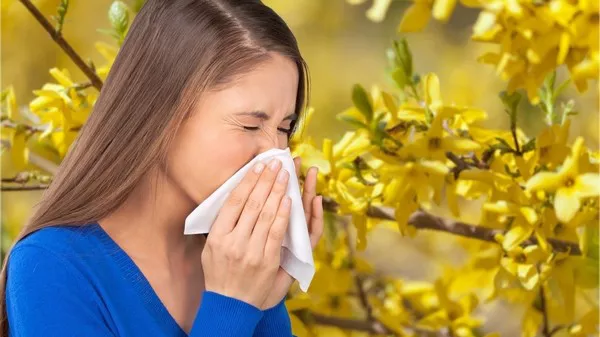A stuffy nose can be a bothersome symptom of allergies, making it difficult to breathe comfortably and disrupting daily activities. Allergies, whether triggered by pollen, dust mites, pet dander, or other allergens, can lead to nasal congestion, sneezing, and discomfort. While allergies themselves can’t always be eliminated, there are several effective strategies to alleviate stuffy nose allergies and improve your overall quality of life. In this article, we will explore various methods to help you find relief from nasal congestion and breathe more easily.
Understanding Stuffy Nose Allergies
Nasal congestion, also known as a stuffy or blocked nose, occurs when the tissues lining the nasal passages become inflamed and swollen. This can result from an immune response triggered by exposure to allergens such as pollen, mold spores, dust mites, animal dander, or certain foods. Common symptoms of stuffy nose allergies include:
1. Nasal congestion: A feeling of fullness or blockage in the nasal passages.
2. Runny or itchy nose: Excess mucus production, leading to a runny or drippy nose.
3. Sneezing: Frequent sneezing is a common response to allergens.
4. Watery eyes: Allergies can lead to watery or itchy eyes.
5. Itchy throat or ears: Allergic reactions may cause itching in the throat and ears.
6. Fatigue: Nasal congestion and disrupted sleep patterns can lead to tiredness.
Effective Strategies for Relieving Stuffy Nose Allergies
1. Identify Allergen Triggers
The first step in managing stuffy nose allergies is to identify the specific allergens that trigger your symptoms. Allergy testing, conducted by a healthcare provider or allergist, can help pinpoint the culprits. Common allergens include pollen, mold, dust mites, pet dander, and certain foods. Once you know your triggers, you can take steps to reduce your exposure.
2. Allergen Avoidance
Once you’ve identified your allergen triggers, take proactive steps to minimize exposure:
Pollen allergies: Stay indoors on high-pollen days, keep windows closed, and use air purifiers with HEPA filters in your home. Shower and change clothes after outdoor activities.
Dust mites: Use allergen-proof covers on pillows and mattresses, wash bedding in hot water regularly, and vacuum your home with a HEPA-filter-equipped vacuum cleaner.
Pet dander: Keep pets out of bedrooms and off furniture, bathe and groom pets regularly, and use HEPA air purifiers in your home.
Mold: Reduce indoor humidity levels below 50%, fix any leaks or water damage promptly, and clean and ventilate bathrooms and basements regularly.
Food allergies: Avoid consuming foods that trigger allergic reactions. Carefully read food labels and ask about ingredients when dining out.
3. Nasal Irrigation
Nasal irrigation involves using a saline solution to rinse the nasal passages. This practice can help remove irritants, allergens, and excess mucus, providing relief from nasal congestion. You can use a saline nasal spray, a neti pot, or a nasal irrigation bottle. Ensure you use distilled, sterile, or boiled water for irrigation to prevent infection.
4. Over-the-Counter (OTC) Nasal Decongestants
OTC nasal decongestants like pseudoephedrine or oxymetazoline can provide short-term relief from nasal congestion by narrowing blood vessels in the nasal passages. However, they should be used sparingly and for short periods (typically no more than three days) to avoid rebound congestion (rhinitis medicamentosa). Consult with a healthcare provider before using these medications, especially if you have any underlying health conditions.
5. Antihistamines
Antihistamines are medications that can help alleviate allergy symptoms, including a stuffy nose, sneezing, and itching. They work by blocking the release of histamine, a chemical responsible for allergic reactions. OTC antihistamines like loratadine (Claritin), cetirizine (Zyrtec), and fexofenadine (Allegra) are readily available. Be sure to choose a non-drowsy formulation if you need to stay alert during the day.
6. Nasal Corticosteroids
Nasal corticosteroid sprays, such as fluticasone (Flonase), mometasone (Nasonex), and budesonide (Rhinocort), can effectively reduce nasal inflammation and congestion. These medications work best when used regularly and as directed by a healthcare provider. They may take a few days to become fully effective, so be patient.
7. Dehumidifiers
Using a dehumidifier in your home can help reduce indoor humidity levels, which can contribute to mold growth and dust mite proliferation. Keeping humidity levels below 50% can create a less hospitable environment for these allergens.
8. Allergy Immunotherapy
Allergy immunotherapy, commonly known as allergy shots, can be considered for individuals with severe allergies that don’t respond well to other treatments. These shots gradually expose your immune system to allergens in increasing doses, reducing your sensitivity over time. Allergy shots are typically administered under the guidance of an allergist and may require a long-term commitment.
9. Allergy Medications
In some cases, healthcare providers may recommend prescription allergy medications, such as montelukast (Singulair) or omalizumab (Xolair), to manage persistent allergies. These medications work differently from antihistamines and nasal corticosteroids and may be more suitable for certain individuals.
10. Lifestyle Modifications
In addition to medical treatments, making certain lifestyle changes can help manage stuffy nose allergies:
Avoid smoking and exposure to secondhand smoke: Smoking and exposure to tobacco smoke can worsen allergy symptoms.
Limit alcohol consumption: Alcohol can dilate blood vessels and potentially worsen nasal congestion.
Stay hydrated: Drinking plenty of water can help keep nasal secretions thin and more manageable.
Maintain a clean and allergen-free home: Regularly clean your home to remove dust, pet dander, and mold. Use allergen-proof covers on pillows and mattresses, and wash bedding frequently.
Conclusion
Stuffy nose allergies can be uncomfortable, but they are manageable with the right strategies and treatments. By identifying allergen triggers, practicing allergen avoidance, and using a combination of over-the-counter and prescription medications as needed, you can find relief from nasal congestion and enjoy a more comfortable life. Consult with a healthcare provider or allergist to develop a personalized allergy management plan tailored to your specific needs. With proper care and attention, you can minimize the impact of allergies on your daily life and breathe more easily.


